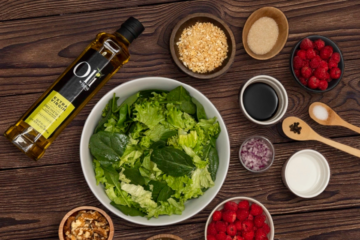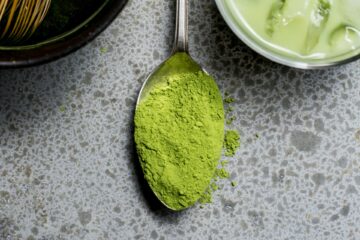Cooking with sherry cooking wine or sherry vinegar is a simple but effective taste-booster.
However, for many, sherry cooking wine and sherry vinegar seem like the same thing, even though they are not.
Sherry cooking wine, aka cooking sherry, is a cheap, low-tier wine with extra salt than other wines, while sherry vinegar results from the fermentation of sherry wine with yeast.
Even though both come from fortified sherry wine and enrich meal flavors, they still maintain individuality.
Keep reading because we’d be making a Sherry Cooking Wine vs Sherry Vinegar comparison in this post, stating some key differences.
Sherry Cooking Wine Vs Sherry Vinegar – Differences
Sherry cooking wine and sherry vinegar are two sherry-source meal additives with comparable cooking roles. However, this relatedness doesn’t make them the same; here are some features that earn sherry cooking wine and sherry vinegar separate identities.
Taste
Because sherry cooking wine and sherry vinegar come from the same source, there’s a mutual ting of nuttiness and sweetness in their respective flavor. However, sherry cooking wine has a more caramel-like yet salty flavor than sherry vinegar. In contrast, sherry vinegar is more acidic and tastes nuttier than sherry cooking wine.
Alcohol content
Sherry cooking wine has a higher alcohol content than sherry vinegar. Cooking sherry has an alcohol content of about 17%, while sherry vinegar has 3%.
Color
Sherry vinegar usually has a darker hue than sherry cooking wine. The color of sherry vinegar ranges from deep amber to bright mahogany. In contrast, sherry cooking can go from bright or pale gold to a rose-colored hue.
Production process
Fermenting sherry wine gives rise to sherry vinegar. In contrast, sherry cooking wine or cooking sherry comes from combining sherry wine with brandy and some salt to increase its shelf life.
Shelf life
The shelf life of sherry cooking wine is limited compared to sherry vinegar. For example, Sherry cooking wine has a shelf life of one year while it is unopened and stored in a cool and dim environment, but 1 – 3 weeks once opened and well-refrigerated. On the other hand, Sherry vinegar has an almost unlimited shelf life as long as you store it in a cool and dark place.
Read also: Is Sherry Vinegar the Same as Red Wine Vinegar?
How is sherry cooking wine best used?
The perfect way to use every cooking wine or sherry is in savory dishes that need a little additional salty taste to their flavor. Here are some exciting ways you can use sherry cooking wine:
- You can add sherry wine to soups and stews to give their flavors vibrance; Beef stew, broth-based soups, French onion soup, and oyster stew are great options.
- Sherry cooking wine is an excellent addition to sauces, such as sherry cream sauce, cheese sauces, and wine-based sauces.
- There are so many chicken recipes that can use that tang that sherry cooking wine offers, and chicken pot pie, chicken a’ la king, chicken Francese, and chicken drum sticks are just some of them.
- Cream bay scallop spaghetti, spaghetti bolognese, and chicken and cashew pasta are some pasta recipes that would benefit from the broad flavor of sherry cooking wine.
- You can use sherry cooking wine for chicken and broccoli stir fry and beef stir fry.
- Sherry cooking wine is an excellent addition to mushroom bisque, braised meals, casseroles, homemade gravy, noodles, octopus escabeche, beef stroganoff, and baked stuffed shrimp.
How is sherry vinegar best used?
Sherry vinegar has its job cut out for it when you want a little bit of acidity in your dish.
Here are some ways you can make sherry helpful vinegar in your meals:
- Sherry vinegar is valuable in your salad dressing. It provides a robust yet non-overpowering flavor to your salad dressings.
- Making a pan sauce with sherry vinegar would expose you to flavors you’ll love.
- Sherry vinegar works excellently for marinades.
- Sprinkle Sherry vinegar on your vegetables for a well-rounded taste.
- You can glaze your cooked meats like chicken or salmon with sherry vinegar.
- Your desserts could benefit from the rounded taste of sherry vinegar as well.
- By adding sherry vinegar, you can make your sauces, stews, and soups more vibrantly flavored.
Some non-culinary ways that sherry vinegar is applicable are:
- It aids weight loss.
- It boosts good cholesterol.
- It reduces blood pressure and blood sugar.
- It allows for better functioning of the liver.
- It can ease indigestion.
Can I use sherry cooking wine instead of sherry vinegar?
Yes, you can use sherry cooking wine instead of sherry vinegar and vice versa.
Suppose you are substituting cooking sherry for sherry vinegar. It would help if you were careful with the amount of salt in your recipe, as cooking sherry has an already salty note to it. To substitute sherry cooking wine for sherry vinegar, mix sherry cooking wine with red wine vinegar in a 1:3 ratio.
Alternatively, you can use sherry vinegar as a substitute for cooking sherry. Add one tablespoon of sherry vinegar to ¼ cup of dry sherry.
Is dry sherry the same as sherry vinegar?
No, dry sherry and sherry vinegar are not the same.
The most apparent difference is that dry sherry is wine and sherry vinegar is vinegar.
Even though both have the same source ingredients, they aren’t the same—dry sherry wine results from completely fermenting grape juice, while sherry vinegar results from fermenting sherry wine.





